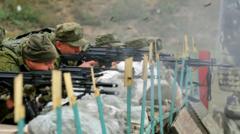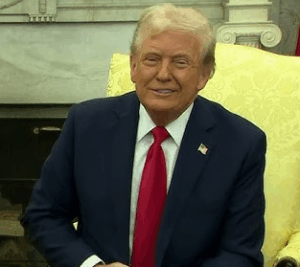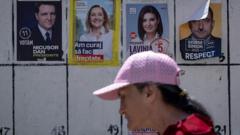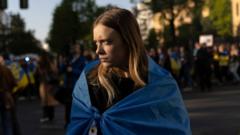In response to the pervasive propaganda in Russian schools, some parents and teachers are adopting creative methods to shield children from mandatory patriotic education, reflecting a growing dissent against governmental narratives.**
Resisting Patriotic Indoctrination: Russian Families Seek Alternatives in Education**

Resisting Patriotic Indoctrination: Russian Families Seek Alternatives in Education**
Anti-war parents and educators in Russia are strategizing to protect children from state-sponsored patriotic teachings as the Ukraine conflict continues.**
In the wake of ongoing conflict, Russian parents and educators are taking significant steps to shield children from state-enforced patriotic education. This initiative comes as they engage in a battle against what they perceive as an overwhelming tide of pro-war propaganda infiltrating schools since President Vladimir Putin’s promotion of “patriotic education” in 2022, which has intensified over three years.
Some families are resorting to creating fake schedules to obscure their efforts to avoid classes centered on patriotic themes, while others are choosing to homeschool. One mother from St. Petersburg, who did not wish to be named for fear of repercussions, described the constant struggle to outwit the school system, where military-themed projects and war-centric narratives dominate. She highlighted concerning instances, such as a music teacher’s competition to perform military songs and school trips featuring discussions by veterans of past conflicts.
Critics initially dismissed the policy as a marginal effort likely limited to regions with poor educational resources. However, the widespread adoption of these patriotic initiatives has taken many by surprise as they have now become deeply entrenched across schools in Russia. The sentiment among parents and educators remains increasingly urgent as they attempt to circumvent the systematic indoctrination that they believe hampers their children's critical thinking and understanding of history.
Some families are resorting to creating fake schedules to obscure their efforts to avoid classes centered on patriotic themes, while others are choosing to homeschool. One mother from St. Petersburg, who did not wish to be named for fear of repercussions, described the constant struggle to outwit the school system, where military-themed projects and war-centric narratives dominate. She highlighted concerning instances, such as a music teacher’s competition to perform military songs and school trips featuring discussions by veterans of past conflicts.
Critics initially dismissed the policy as a marginal effort likely limited to regions with poor educational resources. However, the widespread adoption of these patriotic initiatives has taken many by surprise as they have now become deeply entrenched across schools in Russia. The sentiment among parents and educators remains increasingly urgent as they attempt to circumvent the systematic indoctrination that they believe hampers their children's critical thinking and understanding of history.


















